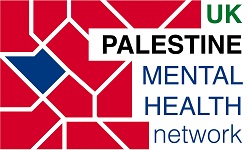Letter in Clinical Psychology Forum
A group of senior UK Clinical Psychologists have just published a letter in the December issue of the British Psychological Society’s journal Clinical Psychology Forum encouraging clinicians not to attend the planned European Association for Behavioural and Cognitive Therapies Conference in Jerusalem in 2015.
The recent shocking events in Gaza are a reminder of the continuing impact on the Palestinian people of the Israeli Occupation of the West Bank and of the on-going blockade of Gaza. The UN General Assembly has designated 2014 as the International Year of Solidarity with the Palestinian People. The collapse of the recent peace negotiations leaves the Palestinians with few non-violent options to bring about the end of the Occupation. Many in the Palestinian community have called on the outside world to support the BDS (Boycotts, Divestment, Sanctions) movement against Israel until it complies with international law and recognizes Palestinian rights. A wide range of professional bodies and individuals has responded positively to this call.
Amongst the many injustices and hardships endured by the Palestinians under the Occupation, is the very significant impact on their mental health (particularly in children) (with, e.g., alarmingly high rates of long-term PTSD) (Altawil et al., 2008; Hobfoll et al., 2011). (The UN estimates that at least a third of a million children in Gaza will need counselling following the recent conflict.) It is, therefore, deeply troubling that the European Association for Behavioural and Cognitive Therapies (EABCT) has decided to hold its annual conference in Jerusalem in 2015. The organisers have attempted to frame the conference as somehow being about a ‘Road to hope and compassion for people in conflict’. However, the reality will be that those attending the Conference will inevitably be involved in colluding with the Israeli Occupation and adding to the oppression of the Palestinians. For example, East Jerusalem is occupied by Israel in contravention of international law and Palestinian therapists living within a few miles of the conference venue will be unable to attend because of the difficulty of obtaining travel permits and of getting through Israeli checkpoints. Similarly the organisers have arranged tours for participants that will visit (and go through) parts of the Occupied territories; no tours have been offered that provide an insight into the impact of the Occupation on ordinary Palestinians (although such tours are readily available, including several run by Israeli organisations).
It is encouraging that there have been several recent calls for UK therapists to seriously consider the ethical issues involved in attending the Jerusalem conference. The UK participant body in the EABCT, the British Association of Behavioural and Cognitive Psychotherapies, at its recent AGM, passed a resolution that described the decision to locate the meeting in Jerusalem as regrettable and divisive. The resolution argued that participating in the Conference would be likely to “be used to promote and or legitimate Israel’s continued occupation of Palestinian land”. As David Raines said, proposing the motion, it was ironic that the choice of venue would bring the conference closer than it had ever been to a population with massive unmet mental health needs, but would inevitably preclude the attendance of the mental health professionals who work with them. Similarly the UK Palestine Mental Health Network recently issued a statement (Sumud Palestine, 2014) urging potential attendees:
to respond to what Palestinian mental health professionals have requested of us, in their efforts to find a non-violent road to re-structuring relations between the Palestinian and Israeli communities. Their position is clear. At their last conference the Palestine Union of Social Workers and Psychologists, joining with many other mental health organisations, have asked that we do not participate in their oppression by normalising a status quo that means the denial of their civil rights, exclusion from the protections of international law and from the social norms embodied in the International Declaration of Human Rights. Yet this is exactly what participating in this conference would amount to.
Many psychologists have a leading role in the world of CBT and may well be thinking of attending the Jerusalem event. We would encourage all psychologists who are thinking of attending to consider boycotting the conference and to make clear to the organisers their reasons for not attending. Pressure should also be put on the EABCT to consult with mental health professionals in Palestine to seek their views on the conference being held in Jerusalem – and to ensure that the EABCT responds to those views.
Independent of this particular conference, we also urge psychologists to be mindful of the on-going oppression of Palestinians under the Occupation and to find the courage to take a stance to protest in the ways that they find most fitting (both personally and professionally).
Prof. Jan Burns, Canterbury Christ Church University; Dr. Anna Daiches, University of Lancaster; Dr. Luke Mitcheston, South London & Maudsley NHS Trust; Prof. Shirley Reynolds, University of Reading/Pat President BABCP; Dr. David Sperlinger, Clinical Psychologist, London; Dr. Shamil Wanigaratne, National Rehabilitation Centre, Abu Dhabi; Dr. Martin Weegmann, Consultant Clinical Psychologist, London; Prof. David Winter, University of Hertfordshire; Dr. Bernadette Wren. Tavistock & Portman NHS Trust; Emeritus Prof. William Yule, Kings College London/Past President BABCP.
References
Altawil. M. et al. (2008) The Effects of Chronic War Trauma among Palestinian Children, in M. Parsons (ed.) Children: The invisible victims of war – An interdisciplinary study, Peterborough: DSM Technical Publications,
Hobfoll, S.E. et al. (2011) The limits of resilience: Distress following chronic political violence among Palestinians, Social Science & Medicine, 72,1400-1408.
Sumud Palestine (2014) An open letter from The UK-Palestine Mental Health Network to Psychological Therapists on the location of the 2015 EABCT Conference in Israel, Retrieved July 31st 2014 from: http://sumudpalestine.org.uk/supporting-therapists/an-open-letter-from-the-uk-palestine-mental-health-network
